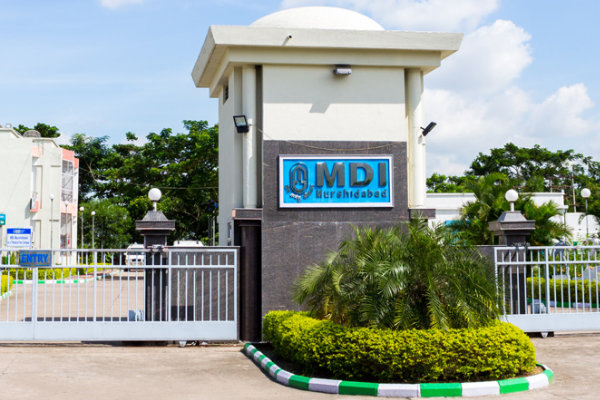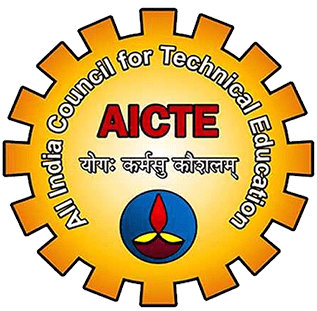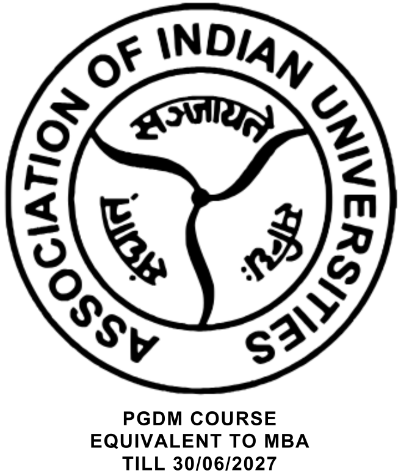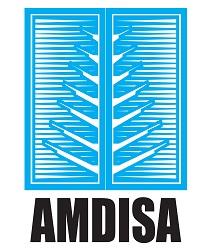ICBIT 2021

International Conference on Business, IT, and Enterprise Architecture
ICBIT 2021
25 – 27th November, 2021 in online mode
Conference Background
Digital transformation is the reimaging of business with digital technology at its core serving both as an enabler and a strategic driver. Digitization profoundly impacts our society and economy and the way we live, work, learn, communicate, collaborate, and decide. New business opportunities are being created by leveraging the Internet and related digital technologies, such as the Internet of Things, cloud computing, services computing, artificial intelligence, machine learning, big data analytics, mobile platforms, and collaborative networks. Enterprises are transforming their strategy, culture, processes, and their information systems to become more digital. The digital transformation deeply disrupts existing enterprises and economies and sets the base for new digital services and digitized products.
Digitization fosters the development of IT environments with small and distributed structures, for instance, the Internet of Things. This has a strong impact on the process of architecting digital services and products, which includes both technological and business aspects. The change from a closed-world modelling perspective to more flexible open-world and living software and system architecture defines the moving context for adaptable, evolutionary, and resilient service-oriented software approaches, which are essential to enable the digital transformation of business, society, technologies, and information systems.
One of the largest digitalization initiatives in the world is Digital India, which aims to transform India into a digitally empowered society and knowledge economy. The NITI Aayog has set a target of US$ 1 Trillion by 2025 for the digital economy in India. Transformation of this scale and complexity needs to be orchestrated and architected. The role of enterprise architecture in making this happen cannot be overemphasized. In realizing the criticality, the Ministry of Electronics and Information Technology has taken the lead to develop a national framework for enterprise architecture called the India Enterprise Architecture Framework.
In this fast-paced era, the organization leaders need to rely on innovation to understand customers and embrace disruptive information technologies. This requires an holistic thinking and a deep understanding of how all the seemingly disparate dimensions come together to provide sustained differentiation and competitive edge. Competing on processes and products is outdated. Organizations today, are creating digital platforms and building ecosystems anchored around such platforms. Platform-enabled ecosystems are making new business models possible and accelerating network effects by creating value and participation. The pace of digitalization in India has been exponentially increasing since 2010, especially after the demonetization phase. In HR, Marketing, Operations, and Finance, digitalization has had a remarkable impact. It helps the customer in providing goods & services on time. It helps businesses in getting competent by recruiting the right manpower, measuring the responsibility and accountability in the activity chain, increasing business revenue, leading brand promotion campaigns with better and wider visibility, forecast sales, understand customer’s lifetime value, price, competitor’s strategy, plant capacity upgradation, and layout designing. But digitization of businesses also faces challenges from various stakeholders. The pros and cons of the digitalization are debatable. However, by adapting ourselves to digitalization, if the world productivity increases with a sustainable model for development, the change is most welcome.
There is clearly a need for greater understanding of current and emerging trends, the opportunities that are being created constantly and the challenges faced in taking full advantage of such opportunities.
The corona pandemic has changed the business landscape considerably, further enhancing the scope of digitization. As more organizations are opting for ‘Work from Home’ for their employees, educational institutions are opting for online classes for their students. There is a significant change in the marketplace as well, as people’s movements are restricted. As a result, more and more people are opting for digital marketplaces and digital payment options.
The ICBIT 2021 conference will foster the multidisciplinary discussion about Digitalization and Business Management from both the scientific and practitioner perspectives, and its impact on current enterprises. Our goal is to inspire researchers to share theoretical and practical knowledge of different aspects related to Digitalization, Data Science, and Security, and Businesses.
Call for Papers
| Broad tracks (Indicative List) but not be limited to | ||
Track – Enterprise Architecture and Information Management in Digital Era
|
Track – Finance in Digital Era
Track- Marketing in Digital Era
Track- Operations in Digital Era
Track- Business Innovation in post COVID period
|
Track- Human Resource & OB in Digital Era
Track- Cases
|
Selected papers will be considered for publication in IUP Journal of Bank Management (A peer reviewed journal indexed on Cabell’s Directory, and also distributed by EBSCO and Proquest Database; ISSN: 0972-6918).
An edited book with ISBN will be published by MDI Murshidabad consisting of selected papers from the conference.
Best paper from the conference will be given a prize of INR 15,000
For further details you may contact.
ICBIT 2021 Email Id: icbit@mdim.ac.in
Dr. Bikramjit Pal, bikramjit.pal@mdim.ac.in
Dr. Souvik Banerjee, souvik.banerjee@mdim.ac.in
Paper Submission Guidelines
Submit your paper to icbit@mdim.ac.in
All submitted papers should articulate original, unpublished research results, experimental or theoretical. Papers submitted to the Conference should meet these criteria and must not be under consideration for publication elsewhere. Manuscripts must follow the style of the Conference and will undergo both peer review and editing. All ‘others work’ you have included in your paper must incorporate in-text citation.
Kindly mention the track name in the subject line while submitting the research paper.
Submission Format
Manuscript Format
- MS Word, single-spaced
- Font: Times New Roman, 12 point
- Text should be justified, except for the article title and block quotations
- Quotations longer than four lines should appear as blocked quotations, singled-spaced, italicized and indented six spaces from the left hand margin.
- Subheadings should be bolded and placed at the left hand margin, one double space below the previous section.
- Word limit: 8000 words (maximum) including endnotes, all figures, tables, References and appendixes
- Tables or charts must be in MS Excel compatible format
- Tables, charts or images may be inserted in the text document
- Electronic images must be 300 dpi resolutions if they are to be included at full size and reference
- Bibliographic References must appear at the end of the manuscript, NOT as footnotes on each page;
- Endnotes must be single-spaced, with one double space between each note
Reference Style
The reference list should appear at the end of your paper. Please include references of all materials you have cited in your paper. Harvard-style referencing should be used throughout the paper. That is, author(s) last name, first name(s) and year of publication, followed by the source and the publisher. References should be listed in alphabetical order and all lines other than the first line should be indented.
Review Process
All manuscripts are subject to review and are expected to meet standards of academic excellence. Manuscripts will be reviewed by peer-reviewers, whose identities will remain anonymous to the authors.
Based on the reviewer’s comments, the organizing committee will take one of the following decisions:
- Accept without revisions
- Accept with minor revision
- Accept with major revision
- Non acceptance
Organizing Committee
Patron:
- Prof. (Dr.) Atmanand, Director, MDI Murshidabad
Conference Committee:
- Dr. Souvik Banerjee, Conference Chair
- Dr. Bikramjit Pal, Conference Chair
- Dr. Ravi Shanker Bhakat, Convener
Advisory Committee Members:
- Prof. Neelam Rani, Chairperson, FPM, IIM Shillong
- Dr. Arvind Shukla, Chairperson, Doctoral Programs, BIMTECH, Greater Noida
- Dr. Prakash Singh, Chairperson, FPM, IIM Lucknow
- Dr. Varsha Jain, Co – Chairperson, FPM, MICA, Ahmedabad
- Dr. Sanjit K. Roy, Associate Professor of Marketing, UWA Business School, Perth, Australia
Important dates:
- Date of Conference: 25th – 27th November, 2021
- Submission of Full Paper / Extended Abstract: 15th November, 2021
- Notification of Paper Acceptance: 18th November, 2021
- Registration Deadline: 24th November, 2021
Mode of conference: Online
Conference Category: International
Registration
Registration Fee:
| Type of delegate | Indian (INR)* (Including SAARC Countries) | Foreign (USD)* |
| Corporate | 1,000 | 15 |
| Academician | 500 | 8 |
| Research Scholar/ Student / Delegates | 250 | 4 |
| * +18% GST extra | ||
Registration Details: Fill the online registration form using the link below.
https://docs.google.com/forms/d/e/1FAIpQLSdzz0ejOCgIBtrryrASG2st-rWG-hvi4kd3DaburWD6soC-ow/viewform
Bank Details
A/c Name – Management Development Institute Murshidabad
Bank – State Bank of India
A/c No. – 33987582978
IFSC – SBIN0012355
Keynote Speakers
Dr. Siba Kumar Udgata Dr. Siba Kumar Udgata is a Professor in the School of Computer and Information Sciences, University of Hyderabad (Institute of Eminence). He served Centre for Modeling, Simulation and Design (CMSD) as a Director from 2012 to 2016. He was a United Nations Fellow and worked in the United Nations University/ International Institute for Software Technology (UNU/IIST), Macau as research fellow in 2001. His research focus is on intelligent algorithms for wireless communication, mobile computing, sensor network and applications. He has worked as principal investigator in many funded research projects in collaboration with Stanford University, University of California, IIT Delhi, and few others. He has published research papers extensively in many peer reviewed international journals and conferences. Topic: Management of COVID crisis using IoT Technology |
Dr. Sanjit K. Roy, Associate Professor of Marketing, UWA Business School, Perth, Australia Sanjit K. Roy is an Associate Professor of Marketing and Fellow at Centre for Business Data Analytics at UWA Business School, The University of Western Australia. He is also an Honorary Fellow at the Australia-India Institute @UWA. He is a certified LEGO® SERIOUS PLAY® Facilitator. He is an Associate Editor at European Journal of Marketing and on the editorial boards of Journal of Business Research, Journal of Services Marketing, Journal of Strategic Marketing, and Journal of Service Theory & Practice. His research interests include Customer Experience Management, Impact of New Technologies (i.e., AI, robots) on Services, and Transformative Service Research. He has published in Industrial Marketing Management, European Journal of Marketing, Journal of Business Research, Journal of Marketing Management, International Journal of Information Management, Information Systems Frontiers, Internet Research, Journal of Services Marketing, among others. Topic: Impact of Artificial Intelligence on Marketing |






